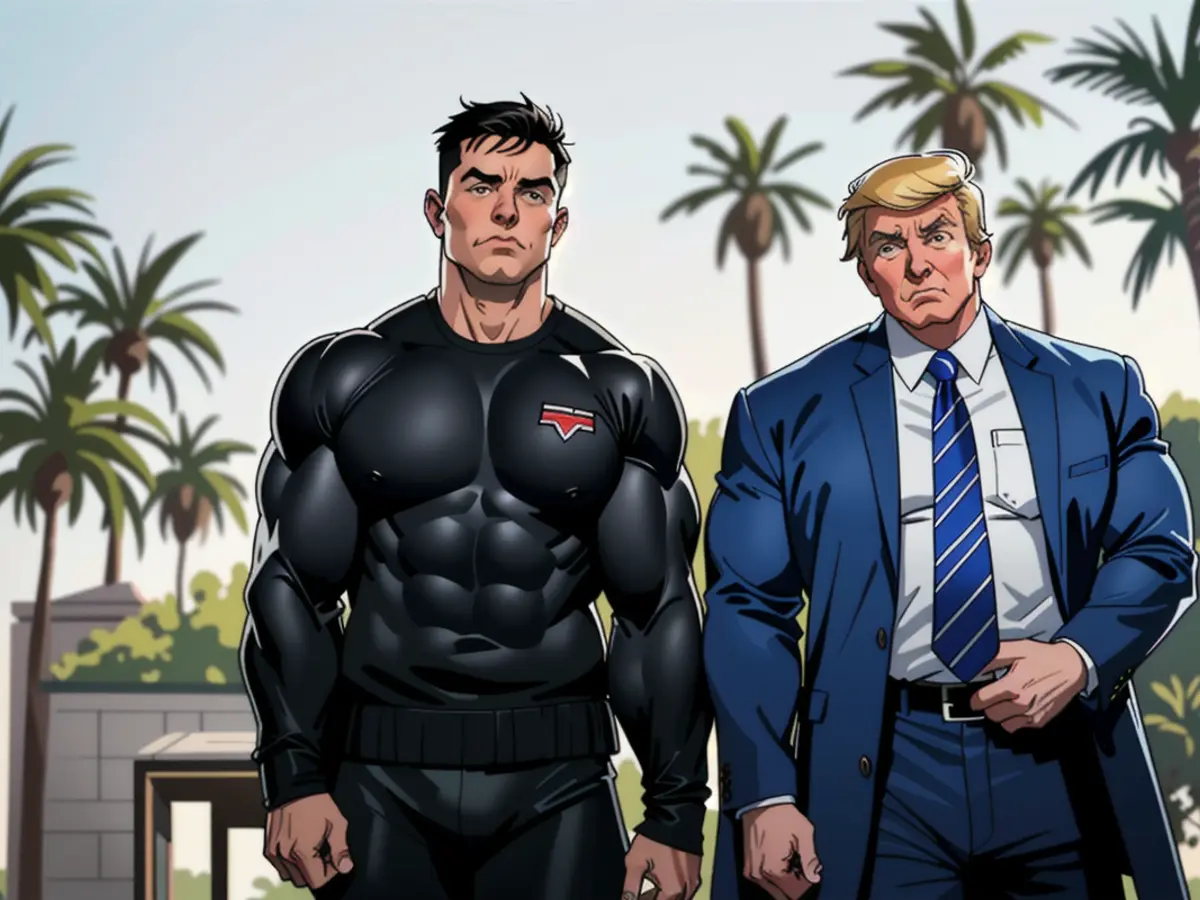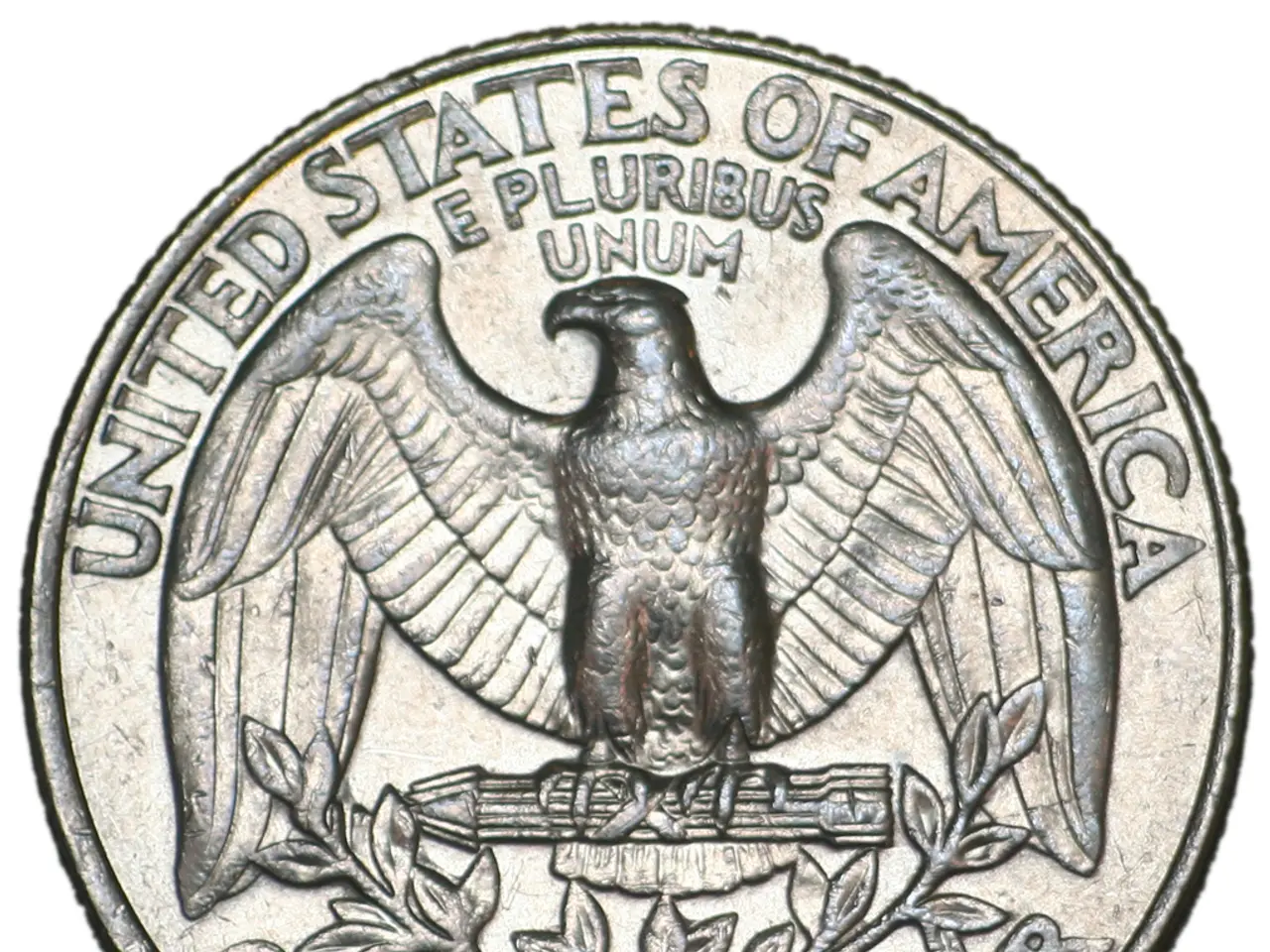Tech entrepreneur maintains distance from Trump's sphere of influence.
Top execs in Silicon Valley are doing a 180 degrees turnaround. Elon Musk, CEO of Tesla, initiated this shift, and now other heavyweights like Jeff Bezos and Mark Zuckerberg are extending olive branches to President Trump of the United States. It's plausible that the fear of losing favor in Washington is quite severe.
Thiel, co-founder of PayPal, broke the mold by funding Trump during the 2016 presidential elections, which was unconventional in Silicon Valley. Fast forward to today, and lavish donations from the liberal hub to the Republican party are no longer unusual. Musk, along with his San Francisco tech posse, have funneled billions into Trump's election campaigns. The returns have begun for the richest man globally, as Trump has placed Musk in charge of an efficiency department in government.
During the campaign, there were no hints that tech moguls were joining the Trump camp. However, some high-ranking tech industry leaders are now seeking a dialogue with Trump, and some even offering their support.
For instance, Bezos, the mastermind behind Amazon, is now positive about Trump's re-election bid. "I'm genuinely very optimistic this time," he said during a New York Times event. The reason behind this optimism is Trump's plans to reduce the bureaucracy. "We have way too many regulations in this country," Bezos stated. Trump appears to be dedicating a lot of resources towards deregulation: "If I can help, I will," Bezos added. He also aims to convince Trump that the press is not the enemy.
Bezos stopped his newspaper, The Washington Post, from endorsing a presidential candidate during the campaign, which is standard practice. After losing thousands of subscribers, Bezos defended the decision in an op-ed. At that time, he argued that he wanted to avoid any impression of bias in an era when many Americans are skeptical about the media. Reports suggest that the newspaper was about to recommend Kamala Harris for the Democrats, but then suddenly stopped, all thanks to Bezos.
The Quest for Political Clout
The decision, made around ten days before the presidential election, drew criticism. Bezos' employees accused him of submitting prematurely to the will of the people, out of fear for his companies. Bezos also owns Blue Origin, a space firm that is eyeing government contracts, and a Trump administration could make life challenging for his companies. When asked if potential retaliation played a role in the decision, Bezos said during the New York Times event: "I certainly didn't think about that."
During the summit, Bezos claimed he wasn't concerned about the relationship between Musk and Trump. He relies on Musk's word that he won't use his political power against his corporate adversaries. SpaceX competes with Bezos' Blue Origin, and xAI with Amazon's AI initiatives.
Facebook, too, is heavily invested in AI development, with xAI being one of the competitors. Meta CEO, Mark Zuckerberg, also seems to be seeking political influence over the future US president's government, as confirmed by Nick Clegg, the company's spokesperson. Zuckerberg wants to shape tech policy, especially regarding the central role of AI. US media saw Zuckerberg's meeting with Trump as a sign of reconciliation. Zuckerberg had been trying to rebuild their relationship for months, according to the New York Times.
Is the political shift in Silicon Valley lasting? In the past, it was known that Zuckerberg visited Trump at his Mar-a-Lago estate in Florida. At dinner, the second-richest man allegedly voiced his support for Trump. "Mark has his own interests, his own company, and his own agenda," said Stephen Miller, future deputy chief of staff, on Fox News. "But he made it clear that he supports the renewal of America under President Trump's leadership."
Zuckerberg and Trump have had a rocky relationship. Facebook suspended Trump's account just before his first term ended, after his supporters stormed the US Capitol on January 6, 2021. However, Meta's oversight board ultimately determined that a permanent suspension was not in line with the platform's rules. Trump regained access to his Facebook and Instagram accounts in early 2023.
Whether this political shift in Silicon Valley is lasting is a topic of debate. Preliminary results show that up to 80% in the region still voted for Democrats. While Republicans have made progress, there's no talk of a political overhaul yet. However, it's not about big tech companies traditionally leaning towards Democrats switching sides, according to Anna Massoglia of OpenSecrets, a bipartisan watchdog group monitoring political donations. "Instead, we're seeing a conservative faction that's anti-establishment becoming more politically active," Massoglia said.
In light of the shifts in Silicon Valley, even Mark Zuckerberg, the co-founder of Facebook and Meta CEO, has shown interest in engaging with the current US president's administration. As confirmed by Nick Clegg, the company's spokesperson, Zuckerberg is eager to shape tech policy, particularly concerning the central role of AI.
This political orientation is not exclusive to Mark Zuckerberg; even Bezos, the founder of Amazon and owner of Blue Origin, has expressed optimism about Trump's re-election bid, appreciation for his plans to reduce bureaucracy, and desire to address the media's role as an 'enemy.'







